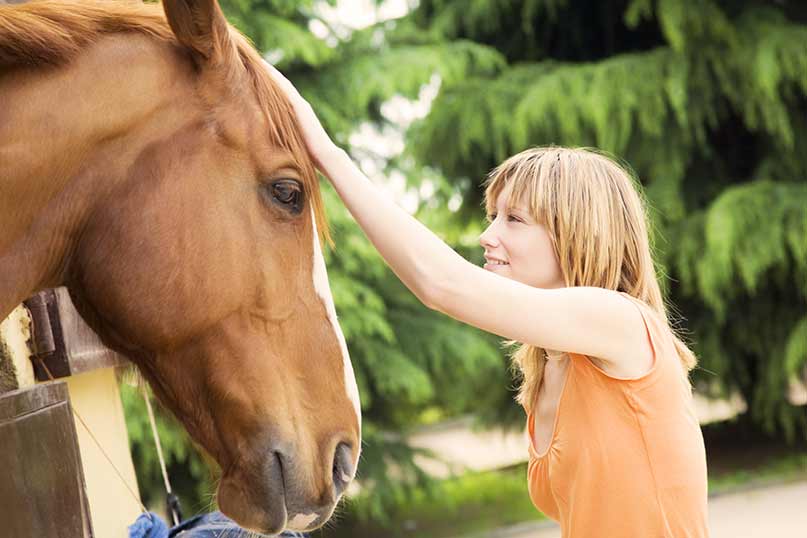
Your horse???s body language can provide clues to his physical wellbeing. Petplan Equine look at the possible reasons behind a range of ???bad??? behaviours.
Unhappy riding
If your horse resents his girth being tightened, or is unhappy during ridden exercise (especially when cantering, which demands a horse???s back to go through a greater range of motion), he could be suffering from ???kissing spine???. This is a condition where the vertical spinous processes of the vertebrae ??? most especially those in the saddle area ??? are excessively close and rub against each other, resulting in a painful back. Definitive diagnosis is made by x-ray and the treatment is usually surgical.
Head shaking
Different to head tossing (see below), this is where a horse jerks his head suddenly when ridden and is an extremely frustrating condition for both horse and rider. It is caused by a dysfunction in the nerve supplying sensation to the skin of the face, and afflicted horses tend to develop it at around five to seven years of age. It is often worse in the summer and is unfortunately a lifelong condition with no current cure. You can help manage the condition with nose nets, fly masks and various medications ??? ask your vet for further advice.
Head tossing and irritability
These are two very common behavioural problems and can occur as a result of health issues as well as rider technique. Riders need to understand the root of the problem here ??? using artificial aids such as draw reins may simply prevent a horse from showing signs of pain, increasing the stress he feels.
If you notice that your horse is behaving poorly during exercise, you must consider the possibility of lameness. This occurs because of pain somewhere in one or more of the limbs and is often only obvious during ridden exercise ??? the additional weight of the tack and rider and the demands of the work increase the pain the horse is experiencing. Head tossing and irritability are two likely signs of his unhappiness.
Your horse may also toss his head around if he has any dental problems ??? especially when wearing a noseband. This presses his cheeks against the sharp enamel points of his cheek teeth, increasing the pain in his mouth. By tossing his head around, your horse is trying to get comfortable. Horses are usually affected more on one rein than the other, depending on where the dental problems are. It???s a good idea for your horse to have twice-yearly dental examinations by a vet or a (BEVA qualified) equine dental technician to help prevent or to treat problems.


